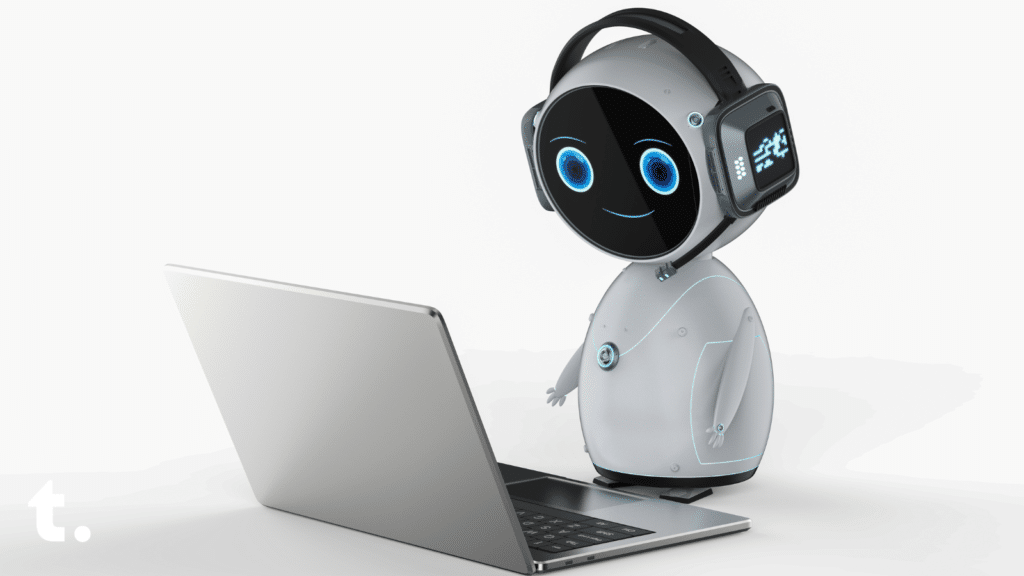The customer experience landscape is constantly shifting and evolving, with businesses under increased scrutiny from their customers. The volatility of the past few years, which have seen a global pandemic and a series of economic downturns, has made customer service more important than ever. These days, customers have high expectations – according to research by Salesforce, 80% of customers surveyed said that the experience that a company provides is just as important to them as the company’s products and services.
While there might be a lot of uncertainty around at the moment, there is one thing that is certain when it comes to customer experience. If they want to stay ahead of the competition and keep up with customer expectations at the same time, customer service teams must keep evolving. To help you do exactly that, we’ve rounded up some of the biggest trends we expect to hit the customer service landscape in 2023.

- Proactive Or Predictive Care
Of course, customers will always be looking for quick solutions to any problems or issues that might arise, but that’s not all they want. Today’s customers also expect companies to be able to protect them from any problems – mainly by being able to actively predict what’s going to happen. According to Gartner, proactive customer service solutions are expected to surpass reactive strategies by 2025. By turning to AI tools to give them real-time insights and comb through historic customer data, like those provided by Salesforce’s Einstein Analytics, businesses can identify issues before they arise, minimising the problems for their customers and giving them a more seamless overall experience.
Omni-channel service can also help businesses to take a more proactive role when it comes to customer service, empowering them to offer a more integrated and cohesive experience. The pandemic changed the way that people interacted with brands, and many businesses were forced to add new channels to keep in contact with their customers. According to a recent study by The Atlantic, 45% of businesses surveyed had added new channels during the pandemic, and the majority of those surveyed said they had a presence on at least five channels (including a website, social media, newsletters, mobile apps, and more). By offering an omnichannel service, businesses can give customers the same level of high-quality service that they expect. Salesforce can help businesses to offer their customers a more omnichannel experience, and with Service Cloud’s Omni-Channel Routing, customer service agents can work faster and more efficiently, talking to all your customers in one place and answering their queries effectively.
- Hyper-Personalisation
Companies that take the time to invest in personalisation strategies are more likely to outperform their competitors – according to one study by Adweek, companies can increase their revenue by about 15% just by implementing personalisation elements. By using tools or platforms like Salesforce Genie, companies are able to gather all the data they have on a customer – from various channels, apps, and sources – and unify them. By seeing all their customer data in one place, they can then create customer profiles based on real-time, up-to-the-minute data, and harness it to deliver a higher level of personalisation. This way, they can offer customers a more personalised experience at every touchpoint, from recommending relevant products via chat support to sending out emails and newsletters that appeal directly to a customer’s needs.
More personalisation can inspire more loyalty from customers, too. For a start, it makes them feel more valued, which makes them more likely to keep purchasing your product or service, and more likely to spend more. By offering more personalisation, brands will also be able to offer their customers more predictive care, as they’ll have more insight into their customers’ behaviour. They’ll also be able to measure customer satisfaction with more accuracy, based on metrics like Customer Lifetime Value (CLTV) and Net Promoter Score (NPS) – this way, they can attract new business and gauge their business’ overall performance.

- More Focus on Privacy and Security
While many customers are willing to give up their personal information in exchange for a more personalised experience, they also want to know that their data is being protected by the companies they’re handing it over to. To gain their customers’ trust, companies will need to do more to prove that they’re storing this data securely and using it efficiently – throughout every step of the customer journey. Two key aspects that need to be considered are data privacy (treating customer data appropriately, obtaining the proper consent, and ensuring that the only people who can access it are those who need it) and data security (in other words, keeping data out of the hands of external threats like hackers and cybercriminals). But it’s not just customers who want their data kept safe. Data breaches have been on the rise in recent years, costing organisations around the globe billions in reparations. According to IBM’s Cost of a Data Breach Report 2022, the average cost of a data breach in the UK has risen to around £4.56 million – not a sum that many organisations can afford to lose.
As data privacy policies and government regulations continue to evolve around the world, companies need to take additional steps to protect both their business and their networks. There are a number of best practices you can implement to keep your data secure, including regularly updating your software, training your employees, and only collecting data that’s absolutely necessary. Companies stand a better chance of earning the trust and respect of their customers if they can demonstrate what they’re doing to keep their data secure. Salesforce offers its users trusted security infrastructure, something many industry leaders have taken advantage of, including Varonis, Egress, and F-Secure.
- More Automation
In 2023, more companies will likely realise that augmenting their workforce with the right AI technologies and digital automation solutions can be a wise investment. It’s already happening, too – according to a study by IBM on the rates of AI adoption around the world, the global AI adoption rate is now at 35%, with 44% of organisations currently working to embed AI into their existing processes.
AI and automation technologies allow companies to offload routine manual tasks to digital or self-service channels, freeing up their customer service agents for other tasks that can have a higher impact on the rest of the business. Automation tools like chatbots and AI could be especially helpful, giving customers the chance to have frequently asked questions answered at any time of day or night. Salesforce’s own AI tool, Einstein, can be used to enhance this type of automation, using its advanced machine learning capabilities to solve customers’ more complex issues. Automated emails are another great way to save time on customer interactions. These emails can be automatically triggered by customers’ actions, helping to support and even convert customers 24/7, 365 days a year. Meanwhile, self-service help centres give customers the ability to support themselves whenever and wherever they need it. And, with over 50% of customers expecting 24/7 support from businesses and 40% saying they’d prefer self-service over speaking to a customer service rep, it may well be the best way to keep customers satisfied.
—————
We’ve already helped countless customer service teams to increase their efficiency, improve their customer satisfaction and boost customer retention.
Do you want to know more about how Trigg Digital can help you to prepare for all that 2023 can throw at you? Get in touch with us today to find out more.
+44 203 239 8492
hello@triggdigital.com
- Revolutionise Customer and Employee Experience’s with Agentforce! 🚀 - December 17, 2024
- How Data, AI and AI Agents Are Transforming industries - December 17, 2024
- On Demand Webinar: AI and Salesforce Einstein for Service - May 30, 2024



